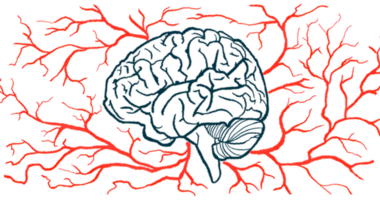Australian researchers win grants to study immune system’s role in MS
MS Australia-funded research will study how immune cells may trigger MS

Two researchers from The University of Western Australia (UWA) have received grants from MS Australia for work that may help scientists better understand how an immune system gone awry can cause multiple sclerosis (MS).
Belinda Kaskow, PhD, a teaching and research fellow at UWA’s School of Biomedical Sciences, will use her AU$25,000 ($16,240) incubator grant to study killer immunoglobulin-like receptors (KIRs), a family of proteins that keep immune responses in check.
“In MS, where the immune system mistakenly attacks the brain and spinal cord, understanding how KIRs work could help us figure out why this happens and how to stop it,” Kaskow said in a university press release.
In MS, immune system mistakenly attacks healthy cells
The immune system is finely tuned to mount a swift, strong response against potential threats while leaving the body’s own healthy cells unharmed. In MS, the immune system goes haywire and mistakenly attacks the brain and spinal cord, causing damage.
KIRs are found on the surface of certain immune cells, such as natural killer cells, which play a role in keeping an immune response against a virus from triggering MS. They are also on certain T-cells, a type of immune cell that can drive inflammation in the brain and spinal cord.
“These proteins, found on certain immune cells, are crucial for controlling immune responses because they act as gatekeepers in controlling how the immune system responds to threats,” said Kaskow, who is also a research fellow at the Perron Institute in Australia.
The number and type of genes coding for KIRs vary from person to person, making them a challenge to study. Working with other researchers at UWA, Kaskow’s team will use recent technology to compare the genetic repertoire of people with MS versus those without the disease.
Knowing which genes are present in each person and when those genes are active may help the researchers uncover why the immune system launches misguided attacks in MS and how these might be prevented, preparing the ground to develop more effective treatments for MS, the university said.
Stephanie Trend, PhD, from UWA’s medical school, will use a three-year grant worth nearly AU$250,000 ($162,120) to better understand how and why B-cells, a type of immune cell, react to threats, and how this may trigger MS.
B-cells produce antibodies that bind to targets to direct how other immune cells respond to an infection. However, some antibodies can also react with the body’s own healthy cells, resulting in autoimmune disease, as is the case with MS.
High levels of antibodies against the Epstein-Barr virus found in MS patients
People with MS may have high levels of antibodies against the Epstein-Barr virus (EBV), which can increase the risk of developing MS by more than 30 times. Trend’s team will use lab-made proteins that mimic natural antibodies to fish for targets of B-cells, including EBV.
Identifying the specific targets recognized by B-cells and their antibodies in MS may help to diagnose the disease more accurately and at an earlier stage, identify those at higher risk of MS, and develop more effective treatments.
The grants are part of a AU$4.5-million ($2.92-million) funding round awarded to 17 research projects across Australia, where more than 33,000 people are estimated to be diagnosed with MS.
“With MS on the rise, both here in Australia and across the globe, MS Australia is intensifying its commitment to halt its progress,” Des Graham, MS Australia’s president, said in a press release from the nonprofit organization.
Julia Morahan, PhD, the organization’s head of research, added: “These grants invest in and empower established leaders in the MS research community as well as up-and-coming talent, ensuring Australia remains a global leader in MS research.”








